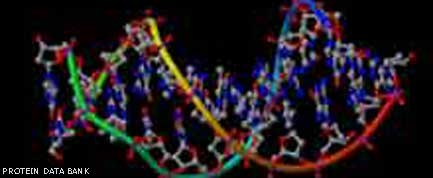Study: Sexual Desire is in Your Genes

Get the world’s most fascinating discoveries delivered straight to your inbox.
You are now subscribed
Your newsletter sign-up was successful
Want to add more newsletters?

Delivered Daily
Daily Newsletter
Sign up for the latest discoveries, groundbreaking research and fascinating breakthroughs that impact you and the wider world direct to your inbox.

Once a week
Life's Little Mysteries
Feed your curiosity with an exclusive mystery every week, solved with science and delivered direct to your inbox before it's seen anywhere else.

Once a week
How It Works
Sign up to our free science & technology newsletter for your weekly fix of fascinating articles, quick quizzes, amazing images, and more

Delivered daily
Space.com Newsletter
Breaking space news, the latest updates on rocket launches, skywatching events and more!

Once a month
Watch This Space
Sign up to our monthly entertainment newsletter to keep up with all our coverage of the latest sci-fi and space movies, tv shows, games and books.

Once a week
Night Sky This Week
Discover this week's must-see night sky events, moon phases, and stunning astrophotos. Sign up for our skywatching newsletter and explore the universe with us!
Join the club
Get full access to premium articles, exclusive features and a growing list of member rewards.
Your sexual desire or lack thereof could be in your genes, scientists announced today. The discovery might change how psychologists view sexuality.
The researchers found that individual differences in human sexual desire can be attributed to genetic variations. The study is the first to provide data to show that common variations in the sequence of DNA impact on sexual desire, arousal and function, the researchers said.
The scientists, at the Hebrew University of Jerusalem, examined the DNA of 148 healthy male and female university students and compared the results with questionnaires asking for the students' self-descriptions of their sexual desire, arousal and sexual function. They found a correlation between variants in a gene called the D4 receptor and the students' self-reports on sexuality.
The results suggest that low sexual desire might be a normal biological condition rather than a psychological problem, the researchers say. Further, it might be possible to develop drugs to alter sexual desire based on the new findings.
The research was led by Richard Ebstein and was published in the online version of the journal Molecular Psychiatry.
Get the world’s most fascinating discoveries delivered straight to your inbox.
 Live Science Plus
Live Science Plus











